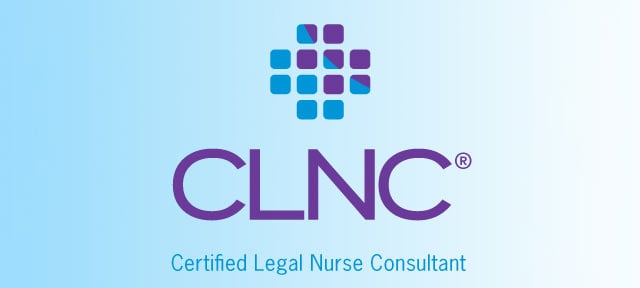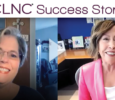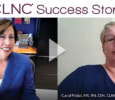One thing every Certified Legal Nurse Consultant knows is that a simple apology by a healthcare provider often goes a long way in disarming anger in patients. But what if a doctor or representative of a healthcare facility were to apologize to a victim of medical malpractice? Do you think that might reduce the number of lawsuits and the associated costs of litigation? It actually does (and that saves us all money)!
“Sorry Works!,” a self-professed “advocacy organization for disclosure, apology (when appropriate) and upfront compensation (when necessary) after adverse medical events” has been successfully implementing laws in 34 states which allow doctors and/or facilities and their representatives to make apologies for medical errors. Those same laws make those apology statements inadmissible in court in order to encourage settlements. Admitting a mistake to keep someone from suing you seems a little odd, but experience and research proves it actually works.
Providers disclosing medical errors to patients and, at the same or a later time, offering a sincere apology, and often compensation, results in decreased numbers of lawsuits. The New York Times reported that as little as thirty percent of medical errors are disclosed to the patients (or their survivors). It is often the concealment of the error and an accompanying unrepentant attitude that feeds the injured party’s anger and results in the filing of lawsuits.
The “apology” program proved successful at the University of Michigan Health System – lawsuits were reduced 68% over the period tracked and at the University of Illinois – lawsuits were reduced almost 50%. Both facilities also experienced drops in legal-related expenses (including settlements). The National Quality Forum in 2009 published an updated practice statement of safe practices that included standards for disclosure of unanticipated outcomes. In a terrific review article, the New England Journal of Medicine has discussed the effectiveness of such disclosures and even the Joint Commission, as far back as 2001 (when they were still JCAHO) adopted the first standards for disclosure. Since then, similar standards and guidelines have been adopted by organizations and facilities across the country. (Here’s a bibliography of articles on disclosure from the Joint Commission.)
So why aren’t more facilities allowing doctors to apologize in order to deter litigation? Part of it is reticence. Would it surprise you to know that according to the Journal of the American Medical Association doctors are either unwilling or afraid to apologize? Insurance companies and facilities still prefer to “deny and defend.” Also defense law firms, whose livelihoods depend on continued and protracted litigation, have no incentive to quickly settle a potential lawsuit.
As a legal nurse consultant working with a case involving an injured plaintiff you will want to discover whether a defendant facility had a disclosure policy in place and whether or not that policy was followed. As a defense CLNC® consultant you may wish to do the same. It may also be time to involve your facility in this type of program as a cost-savings measure.
Here’s an interesting thought, if these types of programs work so well in medical-related cases, what other types of cases might be able to use an apology system? Perhaps you might see this in toxic torts (chemical spills) or products liability (medical-device) cases? How about simple personal injury cases? The possibilities are endless.
Success Is Inside!
P.S. Comment and share your opinion on “Sorry Works.”









I totally agree with this. “I’m sorry,” if said properly, goes a long way. My husband and I recently had an experience that was less than optimal when he was hospitalized back in March. I wrote a letter of complaint to the CEO and the hospital attorney. They passed my complaint onto the nursing managers who said it would be investigated.
I just got a letter in the mail which basically said they were sorry I was upset. That is not an apology. It was full of legal double-speak.
Now I am more angry than ever.
Maybe in addition to apologizing, facilities and providers need to be taught what constitutes an apology.
Hi Vickie
Thank you for bringing the topic of disclosure to the CLNC® consultants. I have been very involved in the topic of full-disclosure. I have written an article for Nursing 2009 to help nurses better understand disclosure and disclosure programs.
In the process of doing research, I had the pleasure of working with Doug Wojcieszak, the founder of Sorry Works! Doug’s brother was a victim of medical malpractice. That painful experience was the driving force behind him developing the Sorry Works! Program. He said the family was not told the truth why his young, healthy brother died. He said if they would have offered a sincere apology, and explanation of what happened, it would have satisfied a lot of questions they had, and an apology would have lessened the anger they felt.
One reason I have such an interest in disclosure is because of my personal experience as a victim of medical malpractice. As with Doug, if my surgeon would have apologized to me, in a sincere manner, and also provided me with full-disclosure, I might not have sought legal counsel.
I look for there to be an even greater emphasis on medical error disclosure in the next year or two, especially since in 2005, the then senators Clinton and Obama co-authored the MEDIC program that would require national medical error disclosure.
My dad started having problems with mid-epigastric pain. Over the course of five years, he had multiple GI studies, was put on H2 blockers, changed his diet, was treated for anxiety, and had a cardiac series performed which included an echocardiogram. One day, he had shortness of breath and thought not pneumonia again. He had pneumonia about 10 years before and remembered how short of breath he was. He went to the ER where a chest x-ray was performed. They found a three pound thymoma the size of a small grapefruit resting happily in his mediastinum.
Before my dad’s surgery, his primary physician from the VA came in and told him that he would not blame my dad for wanting another doctor. He apologized that my dad’s symptoms had gone on for so long and he could not believe that he missed his tumor. Had the chest x-ray been done long ago, my dad’s tumor would have shown up.
But nothing is as compartmentalized as the VA. If your appointment is for a stubbed toe, you will only be treated for the toe even if there is a three pound tumor hanging off of the side of your head. They will schedule an appointment with that department for six months down the road. This is how the VA works and why my dad had this huge delay in diagnosis. The tumor was self contained and had not spread. It had adhered to a small part of the pericardium and nothing else. Thymomas are associated with pituitary tumors, of which he has a small one, but he is following the right course of treatment now and it is being monitored closely.
This doctor earned my dad’s respect; he is a good doctor and my dad says, “an even better doctor now.” But looking at the bigger picture and using an apology as a strategy to ward off lawsuits, if my dad thought for a minute that the doctor’s apology was not sincere, he would have been angry. Many times it takes angry people who will not put up with the status quo.
I hope the health care industry continues to push for systems that identify problems in healthcare delivery, e.g. the delay in diagnosis that my dad experienced. If my dad had sought litigation, a spot light would have been directed to his situation and the circumstances as to why there was a delay in diagnosis. My dad was fortunate that his tumor had not spread. But someone else may not be so lucky. I don’t know if anything was done to identify or correct the systems that contributed to the delay that my dad experienced.
Thanks Vickie for this information and I can see how this topic can initiate a debate. As CLNC® consultants, we need to understand all sides of this issue and how it can play a role in a particular case.
After reading this article, I feel compelled to comment: last September, my son (14 years old) recieved a letter from out local hospital informing him that someone at this hospital had made an unauthorized acces in his medical records.No he had not been a patient, but had een treated for a neck injury from a football practice a few weeks prior to that. The nurse who accessed his records had been a friend of mine, who took the information she learned and told the entire football team that jeff had undergone a CT scan of the neck and it had been negtive. I wondered why people had come up to me on game day saying “arent you GLAD the CT was Negative???” I haden’t realized he had one, but my husband knew (he got to the hospital before i did). To make a long story short, I complained. The hosptial sent me a letter explaining what had happened, with thier regrets. On the day I spoke in person with them, in a very calm voice I said “your letter had 7 regrets , but not ONE apology (sorry, I was angry!). Only then did they apologize. They fired the nurse who did this and told me they hoped that I would let the matter rest.I asked them “what do I tell my son?’. They didn’t know what to say. Had they only apologized to jeff, this would have been avoided. To this date (and it will be one yer next month) they still have yet to apologize to my son.